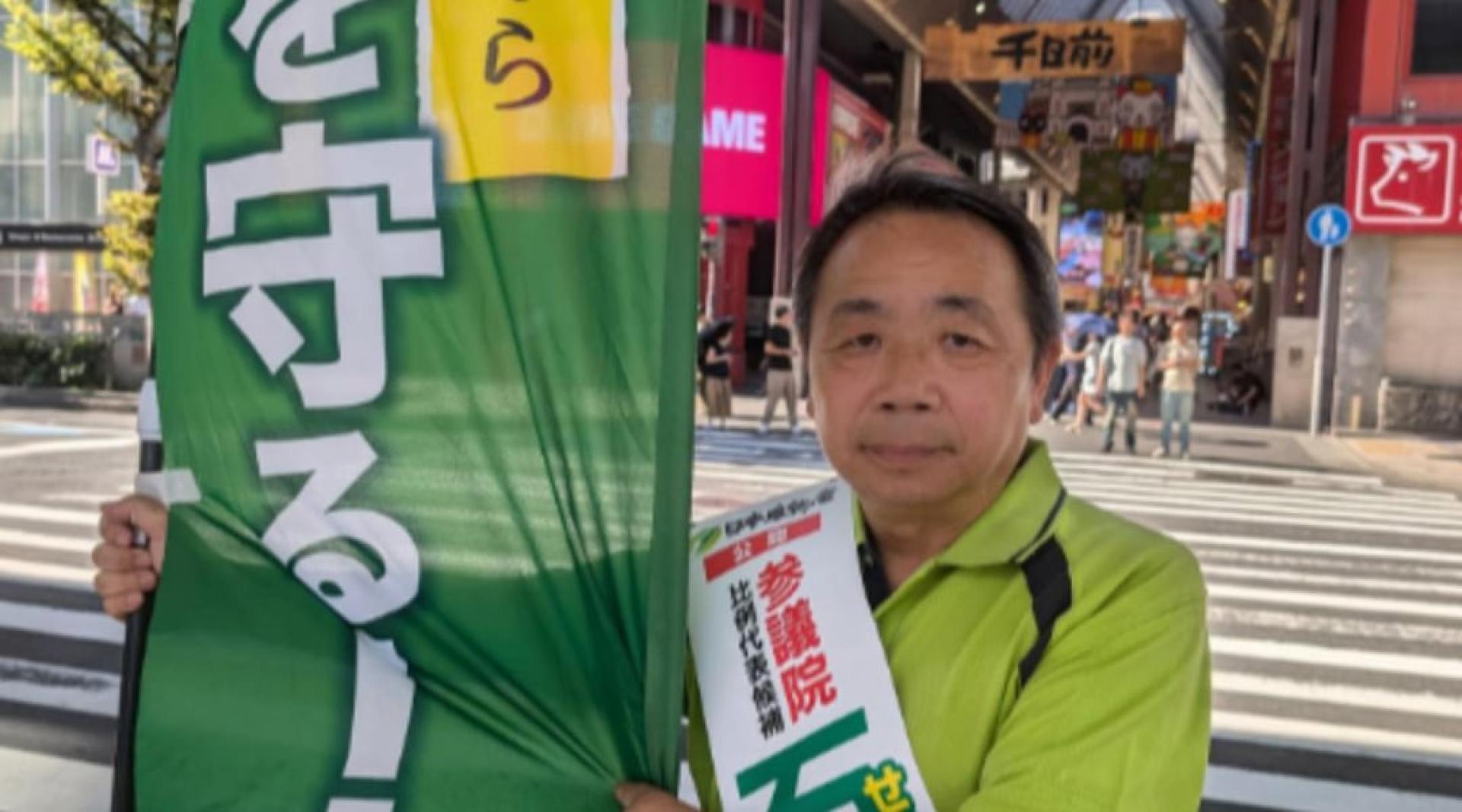Chinese-born but now naturalized Japanese senator Shi Ping, due to his staunch anti-Communist stance, was sanctioned by China on the 8th on the grounds of “spreading falsehoods on issues such as Taiwan and history for a long time.” Hu Xijin, former editor-in-chief of the Chinese state media outlet Global Times, quickly fired back on his personal Weibo, angrily criticizing Shi Ping as a “great traitor” akin to Yu Maochun.
Shi Ping was born in Sichuan and went to Japan to study in April 1988 before becoming a naturalized Japanese citizen. On July 20, Shi Ping was elected to the House of Councillors via proportional representation.
Hu Xijin's article begins by stating that the Chinese Ministry of Foreign Affairs announced countermeasures against Shi Ping, making him the second “great traitor” after Yu Maochun to be sanctioned by the Chinese government.
The article points out that Shi Ping and Yu Maochun are similar in that both were born in China, later went abroad to study, and then settled in another country, even becoming citizens there. Yu Maochun was very active during Trump’s first term and served as former Secretary of State Pompeo’s advisor on China, attracting much attention for his anti-China stances and earning widespread public dislike in China. In contrast, Shi Ping is much less well-known in Chinese public discourse, which has to do with the disparity between the US and Japan’s international status. It is as if “he got a small job in a country that acts as America’s lackey.” Although he has done many bad things, online attention to him in China has always been lower than for Yu Maochun.
Hu Xijin says that going abroad for work, taking another country’s citizenship, and adapting to local ways is a choice many immigrants have to make, but even when bowing one must have boundaries. In being loyal to one’s new citizenship, one should not become an enemy of the country of one's birth or commit fundamental betrayal—a bottom line silently observed by most conscientious people. Hu considers Shi Ping not just a refined egotist but a political opportunist; there are many paths to take in Japan, but he deliberately chose to join the Japanese right wing, whom his fellow countrymen hate the most, treating betrayal of his homeland as political points for himself in Japan. Whatever the Japanese right likes, Shi Ping says and does, breaking any bounds he sees fit, and is utterly unconcerned with hurting the feelings of his former compatriots, even using this hurt as a way to show loyalty to Japan’s right wing.
Hu Xijin criticizes Shi Ping for once falsely claiming the Nanjing Massacre “does not match historical facts,” advocating revising Japan’s Peace Constitution, and supporting Japanese politicians’ visits to the Yasukuni Shrine. As long as it benefits his career in Japan, Shi Ping’s words and actions can cross any line. He is utterly indifferent to possibly hurting the feelings of his former compatriots, treating such harm as a way to express loyalty to the Japanese right wing.
Hu Xijin says that whether it’s Shi Ping or Yu Maochun, both have made complete pledges of allegiance and betrayal, prepared to “go down this road to the bitter end.” But this short-sighted mouse-eyed approach is very foolish, especially for Shi Ping. Japan is so small, extreme anti-immigrant populism is rising rapidly, and trying to pave the way in Japan by attacking China and seeking political favor is by no means a broad path; the mainstream Japanese society’s acceptance of Shi Ping is merely to use him as an “anti-China tool.” Japanese society’s political suspicion towards him and their moral contempt for his betrayal will persist for a long time.
Hu Xijin asserts that Shi Ping will face “permanent curses.” Even if the law cannot punish him, there is still heaven. Because of his choices, the world will only have people who hate, use, or despise him; there will hardly be anyone who truly respects or likes him. He will be one of those on earth with the highest chances of retribution, and Hu declares: “That retribution will enter his nightmares and intermittently appear in the scenes of his real life.”
